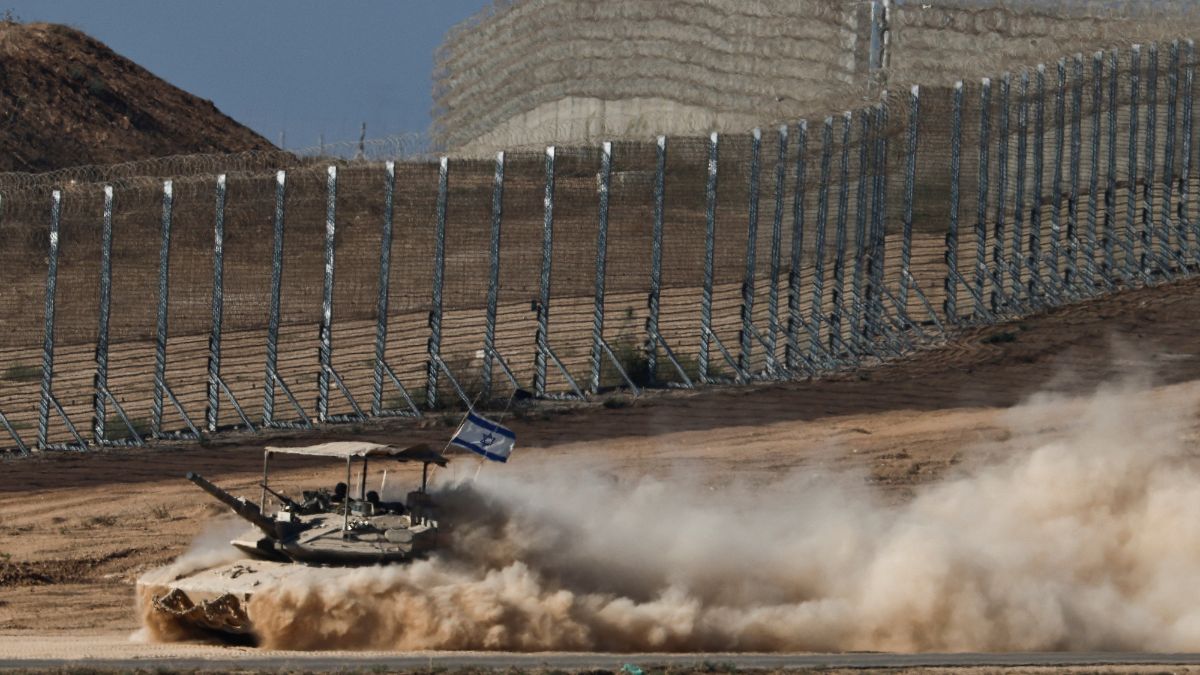Gaza truce hopes reignite: Hamas accepts ceasefire deal, hostage exchange eyed
 An Israeli tank manoeuvres on the Israeli side of the border with Gaza | Reuters
An Israeli tank manoeuvres on the Israeli side of the border with Gaza | Reuters
Hamas has informed mediators that it is ready to accept the latest ceasefire proposal for Gaza and resume negotiations aimed at ending the war. The announcement came after discussions between Qatari Prime Minister Sheikh Mohammed bin Abdulrahman bin Jassim Al Thani and Egyptian President Abdel Fattah el-Sisi in Cairo, raising renewed hopes of progress after months of stalled diplomacy.
The proposal resembles a framework previously advanced by American envoy Steve Witkoff in June, which Hamas rejected at the time. According to sources close to the talks, the plan calls for a 60-day suspension of military operations during which the Israeli army would reposition to permit the entry of humanitarian aid. It also includes a partial exchange of hostages for Palestinian prisoners.
Details point to the release of 10 living hostages in return for 150 Palestinian security prisoners, alongside the repatriation of 18 deceased captives. A Hamas official said those freed would include Palestinians serving life terms, others with sentences of more than 15 years, as well as all minors and women. The exchange is intended as the first step towards a broader agreement covering the remaining captives. Hamas has described the proposal as “the beginning of the path to a comprehensive solution” and is also pressing for written American guarantees that a ceasefire will continue after the initial 60 days.
The shift marks a softening of Hamas’s earlier position, particularly on prisoner numbers and the issue of a buffer zone inside Gaza. Yet despite this apparent flexibility, Israel has shown little sign of backing down. Prime Minister Benjamin Netanyahu dismissed the Hamas announcement and insisted the group was acting out of desperation, citing Israel’s planned capture of Gaza City as the reason for its willingness to engage.
Netanyahu has been meeting with his senior commanders to finalise preparations for an assault on the city, which he considers essential to Israel’s military and political objectives. Defence Minister Israel Katz reinforced this line, arguing that Hamas is open to talks only because of its fear of losing control of Gaza’s largest urban centre.
Israel has consistently said that its position remains unchanged. It demands the release of all hostages, the dismantling of Hamas’s armed capacity, and the establishment of Israeli security control in Gaza. Within Netanyahu’s governing coalition, far-right ministers Bezalel Smotrich and Itamar Ben-Gvir have spoken out against any form of temporary truce, urging instead that the war continue until Hamas is fully defeated.
The fighting has taken a devastating toll on civilians. More than 62,000 Palestinians are reported to have been killed since the conflict began, while aid groups describe the situation as a humanitarian catastrophe “beyond imagination”. Amnesty International has accused Israel of deliberately pursuing a policy of starvation, with hundreds of Palestinians already having died as a result of severe shortages of food and medicine.
Inside Israel, public pressure for a deal is mounting. Large protests in Tel Aviv and other cities have called for a prisoner exchange and an end to the war. Netanyahu has criticised the demonstrators, claiming their actions encourage Hamas to harden its position.
President Donald Trump has backed Israel’s planned offensive, declaring that hostages will only be freed once Hamas is “confronted and destroyed”. His stance signals continued American support for Israel’s military course even as its Arab allies push for restraint.
Qatar and Egypt are working to apply maximum pressure on both sides to salvage the latest initiative. Although earlier talks collapsed in July, the worsening humanitarian disaster and the looming battle for Gaza City have given fresh urgency to this round of mediation. Whether it can hold remains uncertain, but Hamas’s decision to accept the proposal has at least reopened the door to diplomacy at a moment when the war is approaching a new and dangerous phase.
Middle East